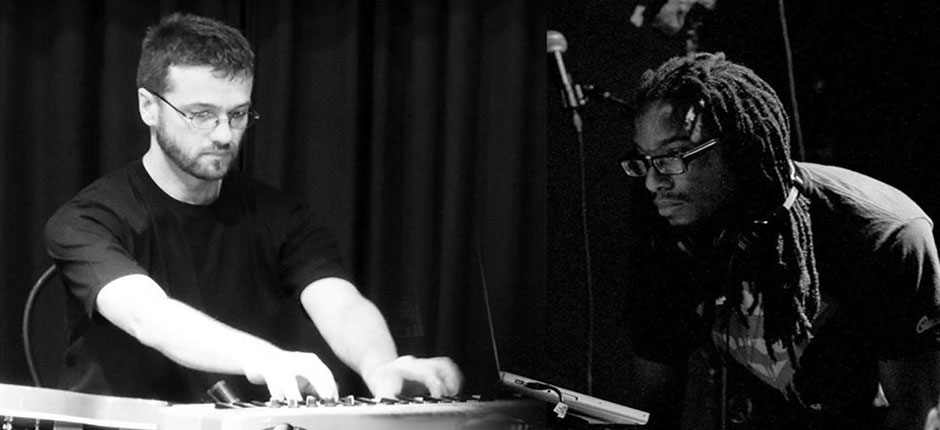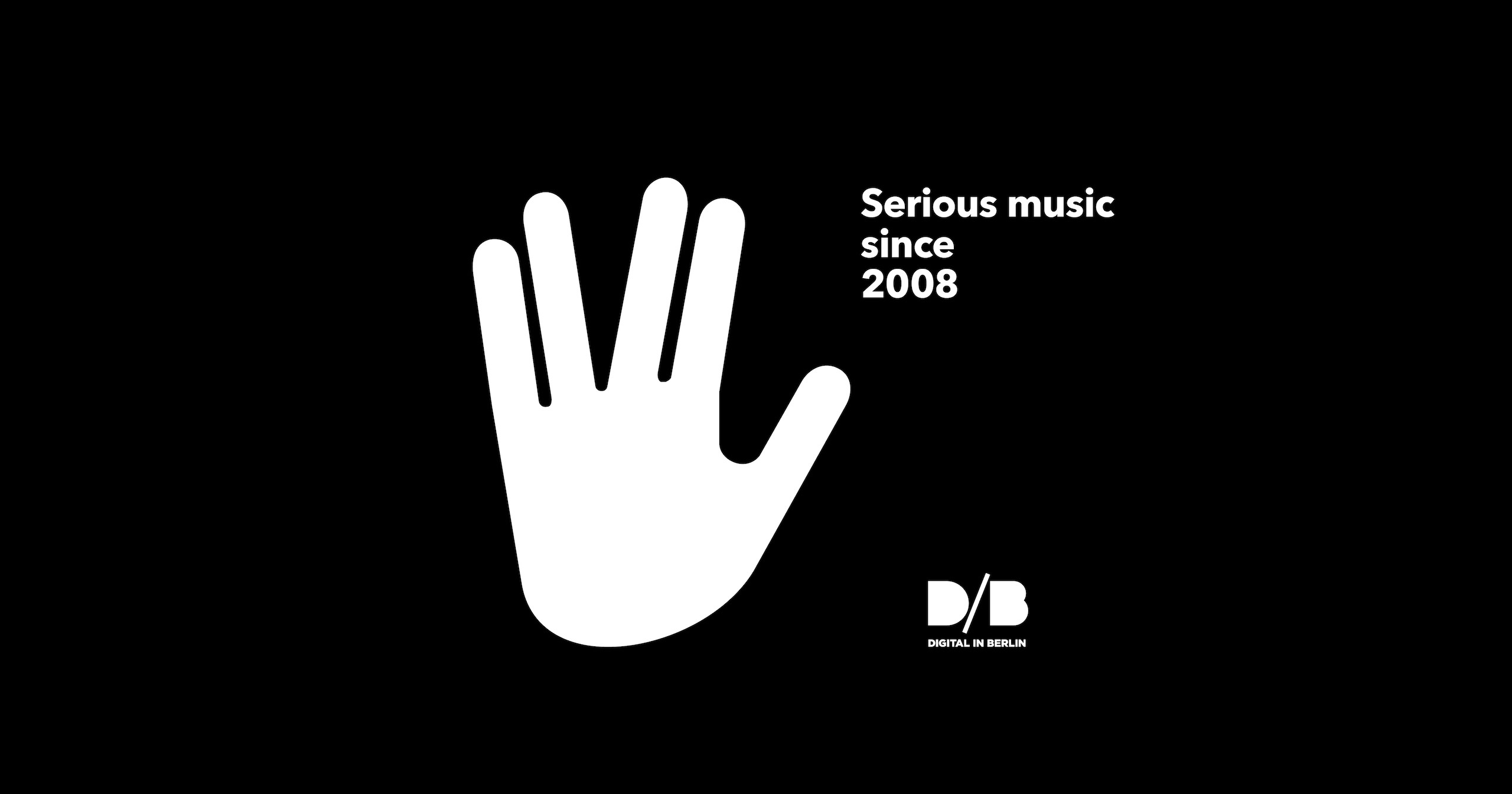Divan Rouge is the debut self-entitled collaboration between audiovisual artist/composer Ulises Labaronnie and Klaas von Karlos of A/V collective ReVerse Bullets. The creation of this group and their album emerges from a communication in energies via four countries – France, Argentina, Germany, and the USA. Divan Rouge is a convergence of mystery, magic, blood, and astral planes.
The two sonic architects, Klaas von Karlos and Ulises Labaronnie crafted the album over a two year period after meeting in an old brothel in France. After communicating with a language of sonic telepathy and Españglish, the duo now releases their first collaboration.
Facts
1: Klaas von Karlos and Ulises Labaronnie have only been in the same place at the same time once – their first meeting in July 2012 in Paris.
2: We, as humans, are a way for the universe to know itself (based upon the writings of Carl Sagan)
3: Music is inside of us. Outside there is just sound. We make the music in our brains.
Questions
What is the biggest inspiration for your music?
KVK: My family. In utero and after birth, I was surrounded by everything from Parliament to Fleetwood Mac, Prince to Pink Floyd, and Mossourgsky to Al Green. I still go “crate-digging” through my mother’s music collection and always discover something new. Also, growing up an only child was vital. You spend so much time alone that your creative world becomes more real and meaningful than anything else. Isolation fosters more time to think and to discover things inside of yourself that you wouldn’t find ordinarily because of societal, social, and familial distractions.
UL: The sound itself, nature and mythology.
How and when did you get into making music?
KVK: This occurred around 2008 to 2009; at the time I was finishing graduate school. I came to music accidentally and out of frustration with the time, money, and resources needed for the filmmaking process. I wanted something that I could do alone or in a small group and with an immediacy of emotion and energy. I became interested in VJ’ing after being burnt out on making music videos and writing a screenplay. I wanted to make the music for my own visuals, and that lead to the first ReVerse Bullets album, “Drapetomania!”. Growing up, though my school district had a great history of music education. We had “jam session” style of music classes in grammar school where everyone rotated between various instruments. I also took Choral classes for several years in that time period, but did not really appreciate it until recently. Also, my family is full of musicians and /or music enthusiasts, so that seed has always been present inside of me.
UL: I was 15 when I was first interested in playing drums. I played in some garage band s. I moved that attention to the piano my mom got in my house. I started composing at 17 years old; at 19, I recorded a demo playing piano and a keyboard. Also, I started to play guitar at that time. At 19 still (it was 1992), I listened to my first record of Brian Eno. I decided to go deep into the ambient genre, and soon into experimental music.
What are your 5 favourite albums of all time?
KVK: It’s probably easier to name my 50 favourite albums, but just off the top of my head at this very moment, the most influential albums to my life and work are (in no particular order): 1. Vangelis – Blade Runner Score; 2. Rage Against the Machine – Evil Empire; 3. Massive Attack – Mezzanine; 3. Miles Davis – Sketches of Spain; 4. Tricky – Maxinquaye; 5. (Tie) Korn – Follow the Leader, Life is Peachy, Issues, & Untouchables.
UL: 1) Thursday Afternoon (Brian Eno) – 2)Dream Theory in Malaya (Jon Hassell) – 3)The Lamb Lies Down on Broadway (Genesis) – Kontakte (Karlheinz Stockhausen) – 5) Passion (Peter Gabriel)
What do you associate with Berlin?
KVK: Beautiful women on bikes. Naps and picnics in the park. Iggy and Bowie. Atari Teenage Riot. A safe haven for the electronic music underground & digital art avant-garde. Experimentation. The Haribo section in the grocery stores.
UL: Classical & Electronic Music
What’s your favourite place in your town?
KVK: In my hometown Saint Louis, Vintage Vinyl – one of the last few independent record stores and the place where I bought most of my music collection growing up in the 90’s. In my second home NYC, Harlem – if not for the current corporate gentrification and institutional real estate grabs, it would be the New Atlantis of the Afro-Latin diaspora by now. In my new home Berlin, it is definitely Sahara in Neükolln. It’s a challenge to find proper spicy food in Germany, so this Sudanese cafe is the mecca of scharf soße and falafel with peanut sauce.
UL: Palermo Parks in Buenos Aires.
If there was no music in the world, what would you do instead?
KVK: No music equals no vibrations equals no art equals no love. I wouldn’t want to live in that world, honestly. If I was trapped on that soulless world I would probably be a shaman, guerrilla mercenary, or poet. A combination of the three would be fun though. There is always money in religion, though, so maybe I would go the L. Ron Hubbard route.
UL: Paint, Sculpture, Photography.
What was the last record you bought?
KVK: Buying” is an interesting term in today’s current economic transition, but I always spend money on artists who inspire me and /or friends of mine. Last week, I purchased four albums on Band camp – Alec Empire’s “Low on Ice” and “Generation Stars Wars, ” and also “Invocation” and “Encryption” by Eiliyas.
UL: Beyond Even by Fripp & Eno.
Who would you most like to collaborate with?
KVK: Depends on the project and the medium, really. Musically (living or dead), I would love to work with Tricky, Jonathan Davis, Ornette Coleman, Saul Williams, Grace Jones, Omar Rodriguez-Lopez, and Trent Reznor. For a film project, I would love to work with cinematographer Christopher Doyle, director Alejand ro Jordowsky, actor Chiwetel Ejiofor, actress Maggie Cheung, and director Wong kar-wai. For some kind of mixed media collaboration (again living or dead), Steve McQueen, David Lynch, Vladislav Kand insky, and Bill Viola.
UL: Brian Eno or Jon Hassell. Lots of thinking on this one . . . .
What was your best gig (as performer or spectator)?
KVK: My best gig memory as a spectator would probably be Mindless Self Indulgence at Mississippi Nights in Saint Louis in 2005. Every MSI show is a gathering of the misfits, and the sheer energy and genre-bending of that band was explosive. Mississippi Nights was a legendary venue on the Mississippi River with an all-wood interior that was so small, you could literally swing from the wood beams in the ceiling if you were crafty (or drunk) enough. As a performer, the best gig was probably at Brancaleone in Rome, 2012. It was my first solo ReVerse Bullets performance. I was torn between playing a downtempo, trip-hop leaning set or a noisy, industrial, twisted drum and bass-driven set. From what I heard later that night, my set led to that stage being shut down by the Italian noise police. It was also there that I met many of the artists who would become my close friends, collaborators, and European network.
UL: Robert Fripp Soundscapes in Argentina 1994 as spectator. As a performer, the Terra Incógnita Concert in Rio Gallegos, Patagonia Argentina, 2010.
How important is technology to your creative process?
KVK: Divan Rouge would not exist if not for current technology. The Internet, Dropbox and DAW’s like Ableton were intrinsic to our process on this release. Since we live on two different continents (and our engineer on another), the ability to communicate instantly, transfer ideas back and forth made this collaboration possible. From our initial meeting to the release of our EP, the entire process was exactly two years. Some of the songs emerged more instantly than others, but others like “Jean Grey” and “When You Wish” were beasts to conquer – lots of hair pulling, cigarettes, altered states, and wall staring. Ideally, depending upon budget and scheduling, we can write the next DR album in the same city – eye to eye and synth to synth.
UL: Very important because it lets me build up worlds of ideas, but it is not indispensable to me. I know very well how to play acoustic instruments and /or found objects if necessary.
Do you have siblings and how do they feel about your career?
KVK: I have a sister, but we did not meet until I was a graduate student in New York. I grew up in the U.S., and she was raised in Canada. She has a nomadic, frequent flier miles career as well, so I think we understand and support one another quite well.
UL: No, but I feel other musicians are my family who make more or less the same type of sounds. They respect me as a passionate creator, always ready to work on art.
Our Favourites: Jean Grey | Chaptre Un
Links: Soundcloud | Divan Rouge Interview with Divan Rouge by Digital in Berlin

